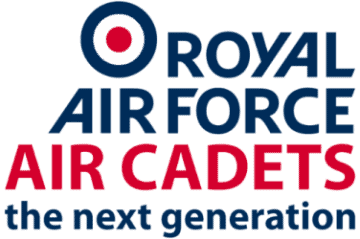Royal Air Force fighter jets have started protecting NATO’s eastern flank, close to the Black Sea, following a handover ceremony today in Romania.
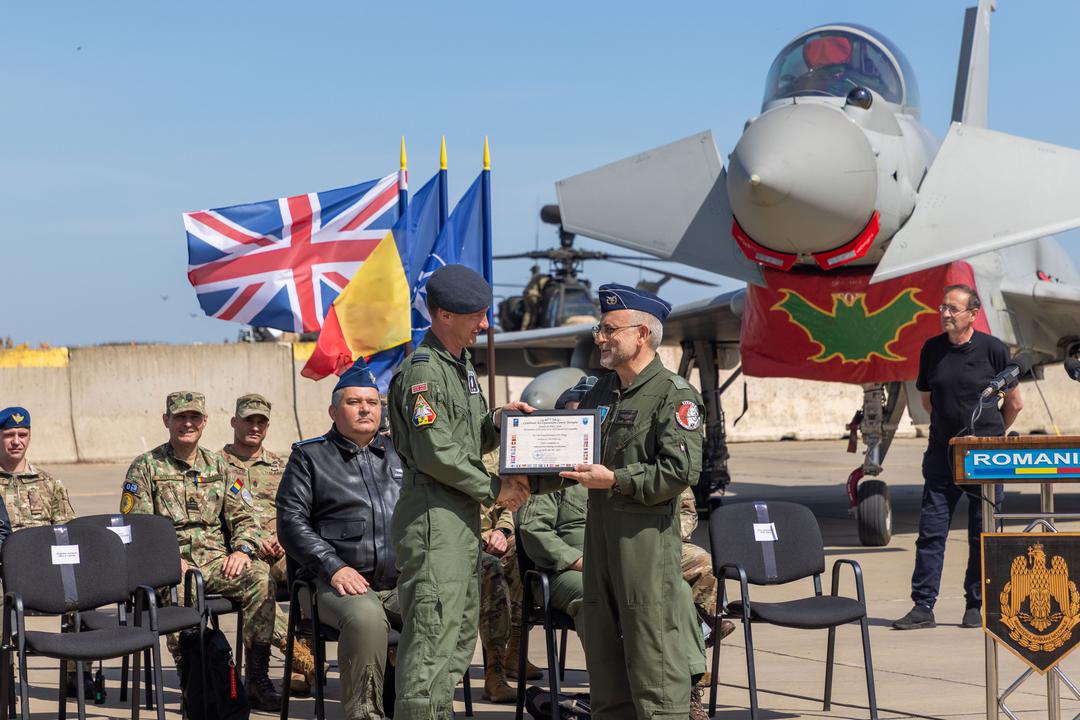
Six RAF Typhoon fighter aircraft are taking part in the four-month mission, with jets from IX (Bomber) Squadron, along with more than two hundred RAF personnel from 140 Expeditionary Air Wing (140EAW) deployed from RAF Lossiemouth to Mihail Kogalniceanu Air Base in Romania. They will fly alongside the Romanian Air Force as part of NATO’s enhanced Air Policing mission until August.
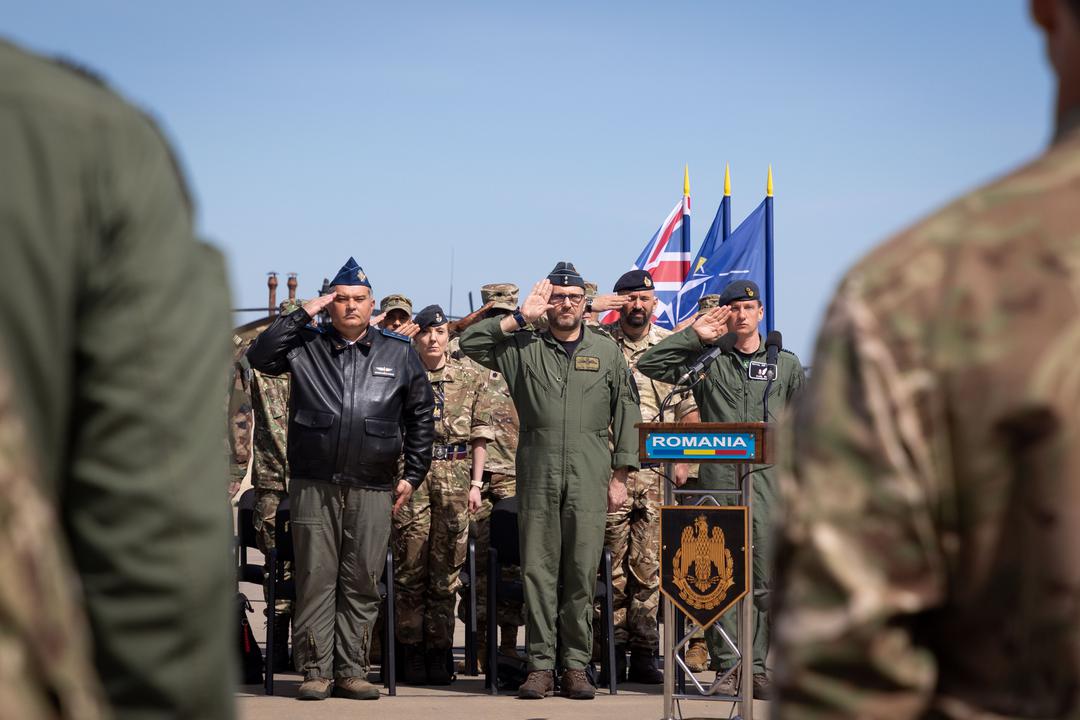
The air policing mission begins this week following a ceremony today, 9th April, involving RAF personnel, their Romanian counterparts, and NATO officials. The personnel involved in the mission will be on standby at a moment’s notice to launch Quick Reaction Alert (QRA) intercepts of Russian aircraft approaching NATO airspace.
“Our NATO air policing deployment helps to keep Europe’s skies secure, and I pay tribute to the dedicated personnel delivering this important mission.
Ready to launch at a moment’s notice for the next four months, the Typhoon pilots will respond with professionalism to threats and incidents in support of our collective security.
We’re showing the scale of our commitment to NATO in its 75th year, with deployments like this and thousands of personnel operating and exercising across the alliance to keep the UK and our allies safe.”
Defence Secretary Grant Shapps
The countries involved in NATO’s air policing missions rotate on a regular basis, with the RAF having flown to intercept more than 50 Russian aircraft in the first half of last year while leading the Alliance’s enhanced air policing mission from Estonia. This will be the fifth time the RAF have participated in the air policing mission in Romania.
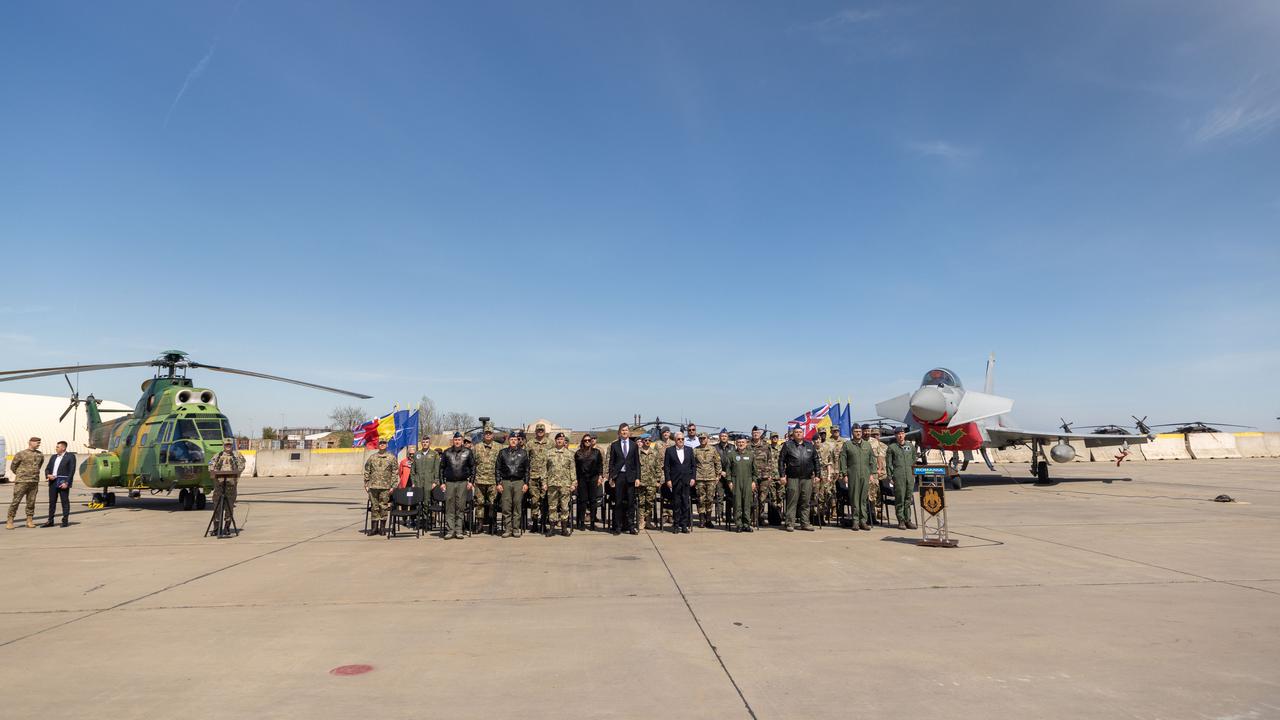
Personnel from 140EAW could be required to launch in their fighter jets to intercept Russian aircraft that do not liaise with NATO-controlled regional air traffic agencies and do not file flight plans, therefore failing to adhere to international norms. This, in turn, creates a flight safety risk that must be investigated and monitored by NATO aircraft to ensure the safety of all air traffic in the region.
Aircraft frequently intercepted by the RAF during previous air policing missions include Russian long-range strategic bombers, surveillance aircraft, and transport aircraft. QRA intercepts are key to maintaining airspace security and protecting international borders, as well as acting as a clear deterrent against threats.
“The Royal Air Force is very proud to be back in Romania as part of the UK’s contribution to NATO, working with our Romanian colleagues. Our presence here is another example of the UK’s steadfast commitment to NATO and for the RAF, a further demonstration of our air power projection capability.
As with every operation, there has been an enormous amount of preparation to get us to this point: from the huge road moves, delivery of equipment, training of our expeditionary air wing personnel and of course to the Typhoon squadron from RAF Lossiemouth arriving. I wish to extend my sincere thanks to all involved in the herculean effort to ensure smooth accreditation and wish them a successful deployment.”
Air Commodore Cunningham
11 Group Assistant Chief of Staff of Operations
Enhanced Air Policing deployments are planned in advance and rotate between NATO Allied Air Forces, ensuring collective deterrence and defence protecting and securing the integrity of NATO’s airspace.
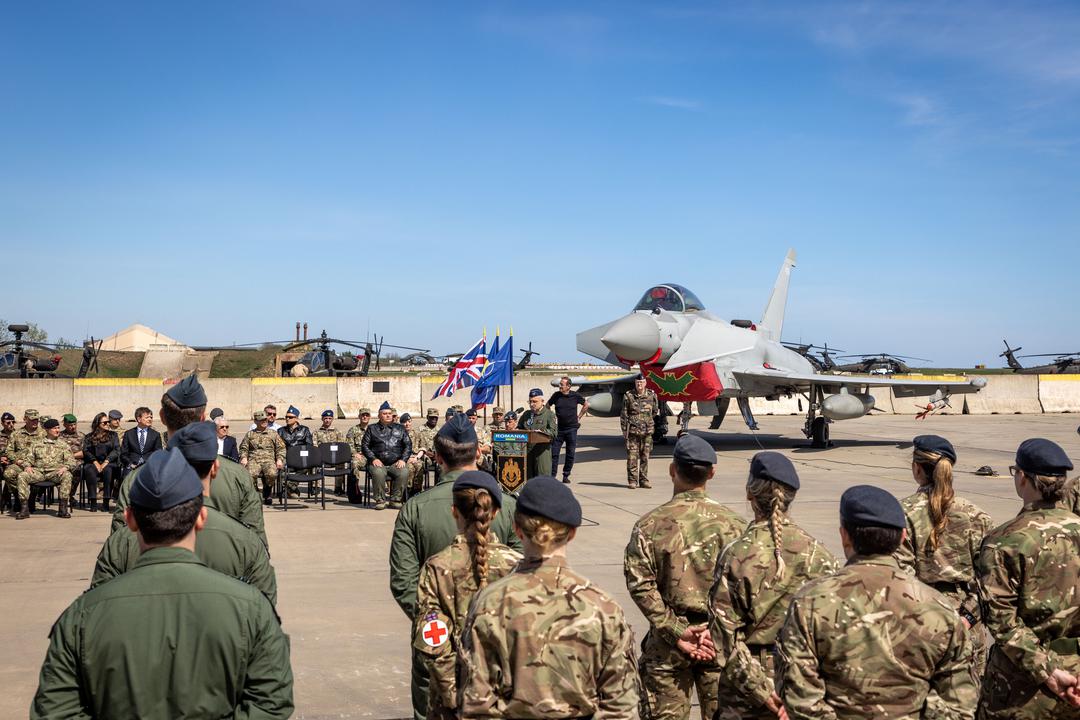
NATO's enhanced Air Policing in the south was introduced in 2014 to reassure Allied populations along the eastern flank after Russia's illegal invasion of Ukraine’s Crimean peninsula.
“This will be the RAF’s fifth enhanced Air Policing rotation in Romania, having completed the first iteration in 2014. The missions contribute to the development of the reaction and deterrence capacity and is a strong sign of the Alliance’s cohesion. Ensuring NATO is ready to secure the skies 24/7.”
Wing Commander Bird
Commanding Officer of 140 Expeditionary Air Wing
The air policing mission is part of the UK’s wider commitment to NATO and the security of its eastern flank, alongside the presence of around a thousand British soldiers in Estonia as part of NATO’s enhanced Forward Presence.

